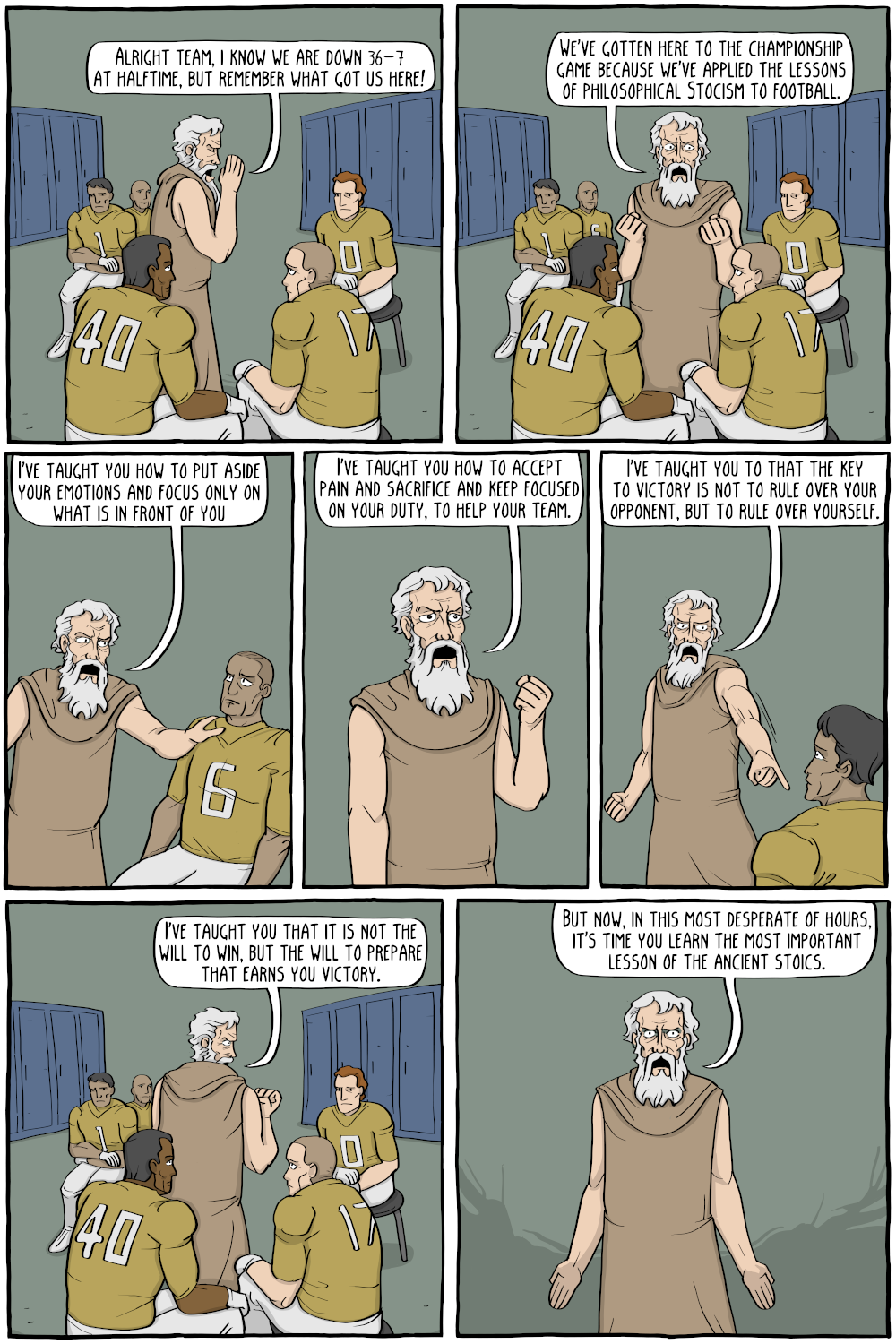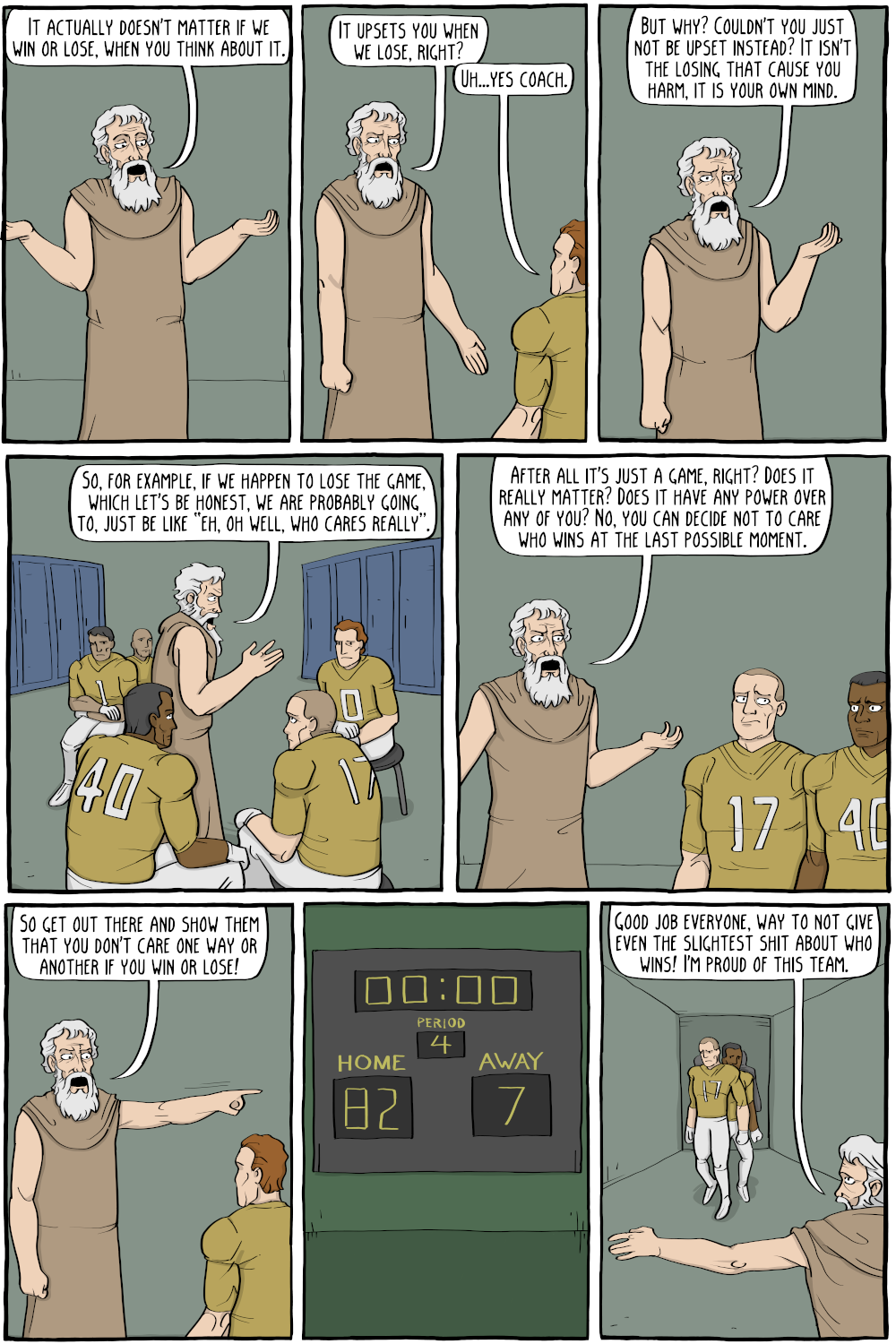

Stoic ideals have an interesting relationship with sports, in that the philosophy naturally lends itself to sports training, but is very much at odds with the sports cultures themselves when it comes down being a fan of and playing in the actual games.
For example, many highly successful coaches (like Nick Saban for example) are particularly obsessed with the idea that we should only worry about the process which leads to success, and not be worried about success itself. That is to say, in Stoic terms, we need to only worry about cultivating our virtue towards being a good athlete, by practicing the way we should, making decisions the way we should, and always doing what is best for the team. We should not worry about whether or not we win. This is because you can do all the right things and still lose anyway, either because your opponent is simply better than you, or merely because of chance. This means that in order to become the best athlete or team, you need to intentionally ignore the outcome, and focus merely on what you can actually control, namely the process. A great example is when Bill Belichick was asked if he regretted going for on fourth and 2 after the call failed and he lost to the Colts in 2009. He responded that of course he didn't, because he still believed that choice led to the greatest chance of success.
However, this creates a strange dilemma. If all that matters is your virtue in moving towards the best chance to win the game, and the outcome doesn't matter, why play the game at all? Why not only practice? Not only that, but in a very real sense, the Stoic ideal of accepting that your opponent might be better and that you did all you could goes counter to the very desire to win, from an existentialist perspective. An existentialist would have no problem saying that, in fact, you want to suffer when you lose. What we desire out of sports isn't the lack of suffering, or even happiness, it is winning alone that is the goal. Many athletes would only accept that they would suffer if they lost a big game, but in a way they would even desire to suffer. Not only that, but many would willingly accept suffering in order to win, so the idea that suffering should be avoided by consoling ourselves that we were virtuous is absurd, from that point of view. That's because all they really want to do is win, or, in the words of the greatest existential coach of all time, Al Davis, "winning isn't everything, it is the only thing."
Permanent Link to this Comic: https://existentialcomics.com/comic/338
Support the comic on Patreon!










